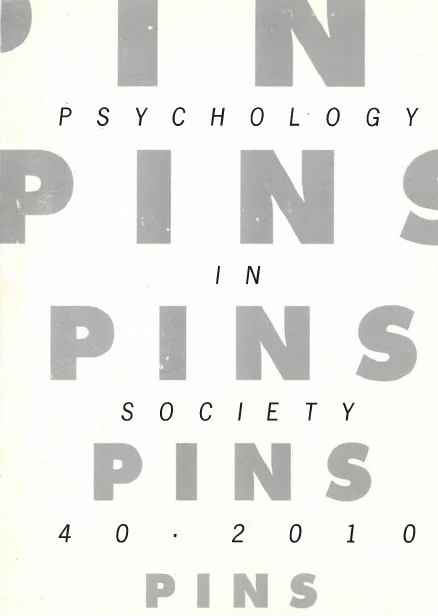EDITORIAL: FACING THE APARTHEID ARCHIVE
DOI:
https://doi.org/10.17159//2309-8708/2010/n40a1Abstract
When Jacques Derrida (1998) wrote Archive fever in the mid-1990s, its seminal importance was almost immediately recognised across much of the disciplinary
spectrum, from philosophy to cultural studies, and from history to literary studies, to name but a few. Where mainstream psychology is concerned, however, the reception was reminiscent of David Hume’s characterisation of his Treatise of human understanding, that it “fell dead-born from the press, without reaching such distinction as even to excite a murmur among the zealots” (2010: 3). What makes psychology’s neglect of this text, and many others like it, all the more puzzling, is not only that the full title, Archive fever: A Freudian impression, clues as apparent a psychological connection as any, but that the very content of the text suggests a wrestling with issues that are profoundly psychological – issues and dynamics such as memory inscription and iteration, identity, loss and mourning, the desire for origins and continuities, and various responsibilities, limitations and possibilities that derive from a theory of memory and the archive.
Downloads
Downloads
Published
How to Cite
Issue
Section
License
This journal is an open access journal, and the authors' and journal should be properly acknowledged, when works are cited.
Authors may use the publishers version for teaching purposes, in books, theses, dissertations, conferences and conference papers.
A copy of the authors’ publishers version may also be hosted on the following websites:
- Non-commercial personal homepage or blog.
- Institutional webpage.
- Authors Institutional Repository.
The following notice should accompany such a posting on the website: “This is an electronic version of an article published in PINS, Volume XXX, number XXX, pages XXX–XXX”, DOI. Authors should also supply a hyperlink to the original paper or indicate where the original paper (http://www.journals.ac.za/index.php/pins) may be found.
Authors publishers version, affiliated with the Stellenbosch University will be automatically deposited in the University’s’ Institutional Repository SUNScholar.
Articles as a whole, may not be re-published with another journal.
The copyright of the article(s) lies with the author(s).
The copyright of the journal lies with PINS-psychology in Society.
The following license applies:
Attribution CC BY-NC-ND 4.0 - https://creativecommons.org/licenses/by-nc-nd/4.0/

